Simplifying Life Insurance in India
12 Developmental Milestones of a 17 Month Old Baby
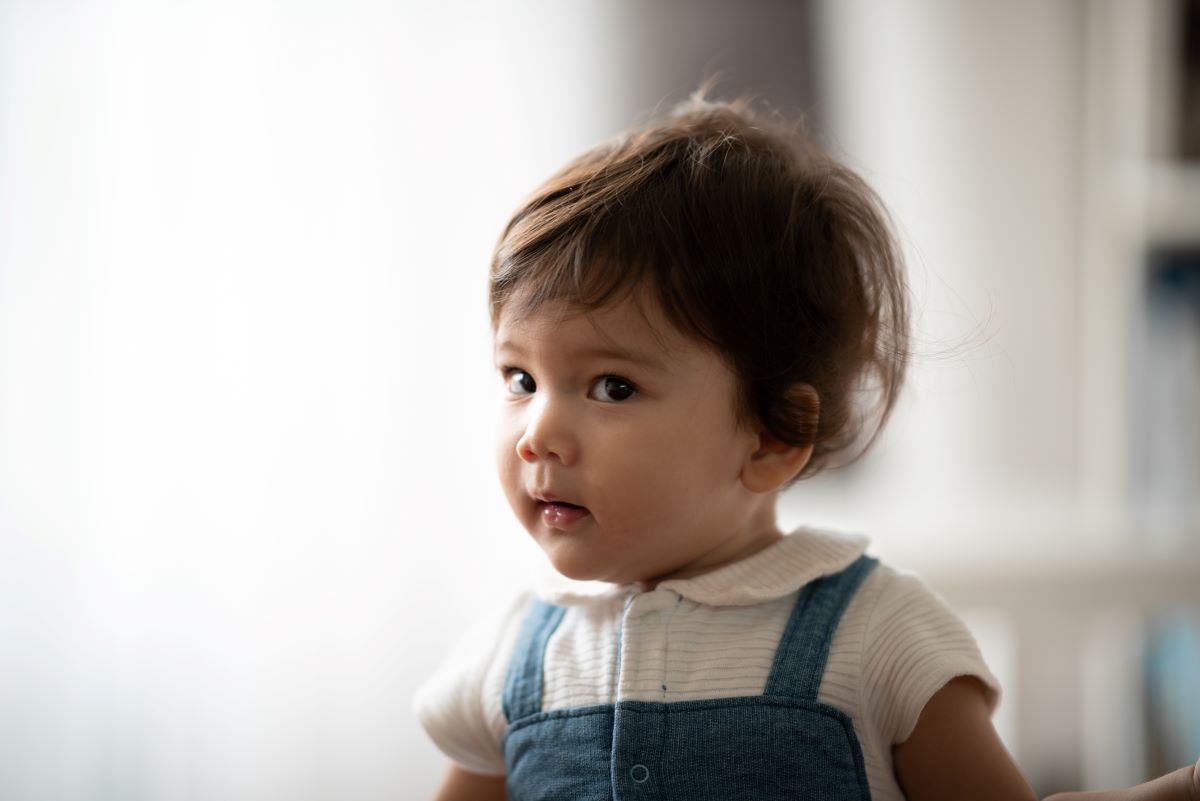
The growth of a baby from infant to toddler is quick and imperative. This is when they need their parents' full support and care. Understanding the needs of a baby at this growing stage is crucial for the proper functioning and development of a baby's overall health.
Checking milestones helps parents understand a baby's needs and wants. Through proper monitoring, parents can detect early signs and immediately get help. Read ahead to learn about a 17 month old infant's milestones.

Table of Contents

What Most Babies Do by 17 Months?
Most babies begin to cut off several 17 month old developmental milestones; these reflect their ever-increasing independence and cognitive capabilities. They walk more comfortably and can even run or climb at this age. Most 17 month olds can utter simple words.
They are involved in the slightly more complex play, which shows an interest in the environment and an appraisal of one's creativity. In general, babies at this stage of development undergo a period of phenomenal growth as they increasingly can make sense of the world around them.
17 Month Milestones & Development Checklist
1. Movement Milestones For a 17 Month Old Baby
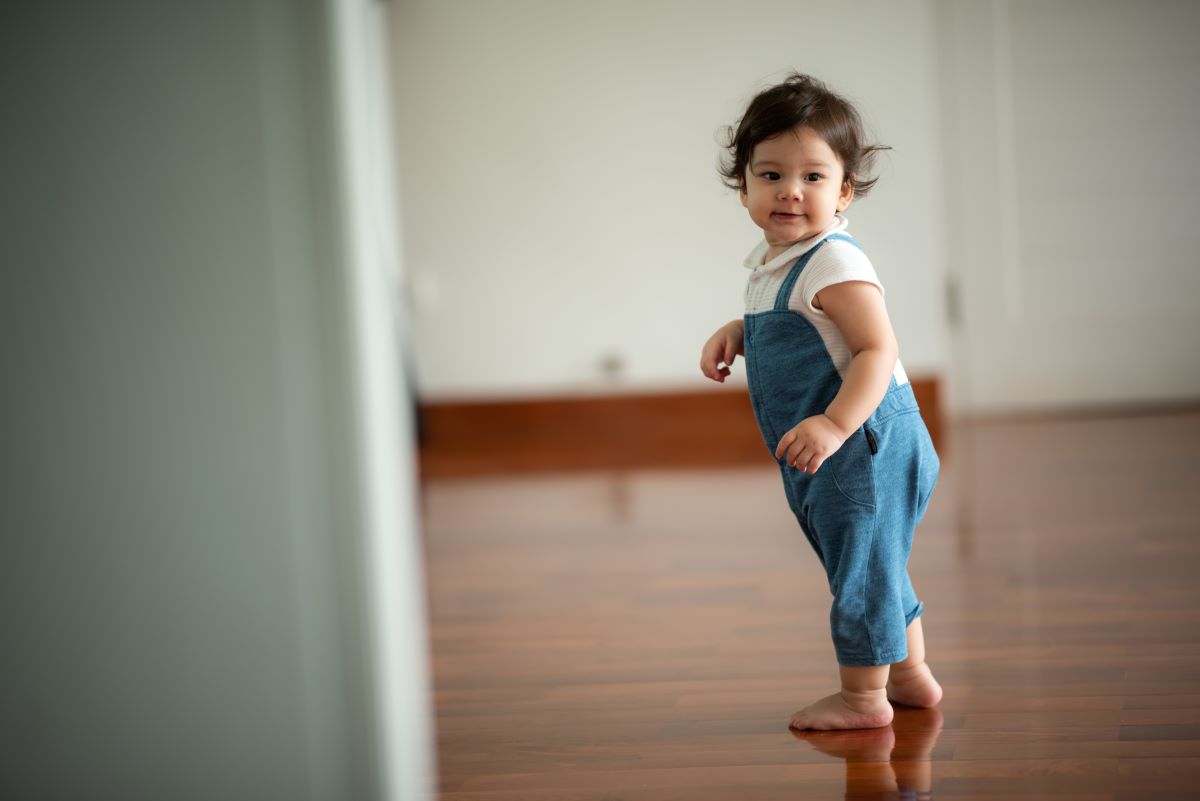
Movement Milestones for a 17 month old:
- All toddlers want to climb up onto furniture or climbing equipment in the playground.
- They like kicking a ball and enjoy interactive play.
- They can now climb the stairs on a railing or with support up the handrails.
- They play on the toys or get something using squatting.
- Better balance enables them to walk and stand more steadily.
- Dancing, playing with balls, or having fun in safely accessible outdoor environments.
2. Visual and Hearing Milestones For a 17 Month Old Baby
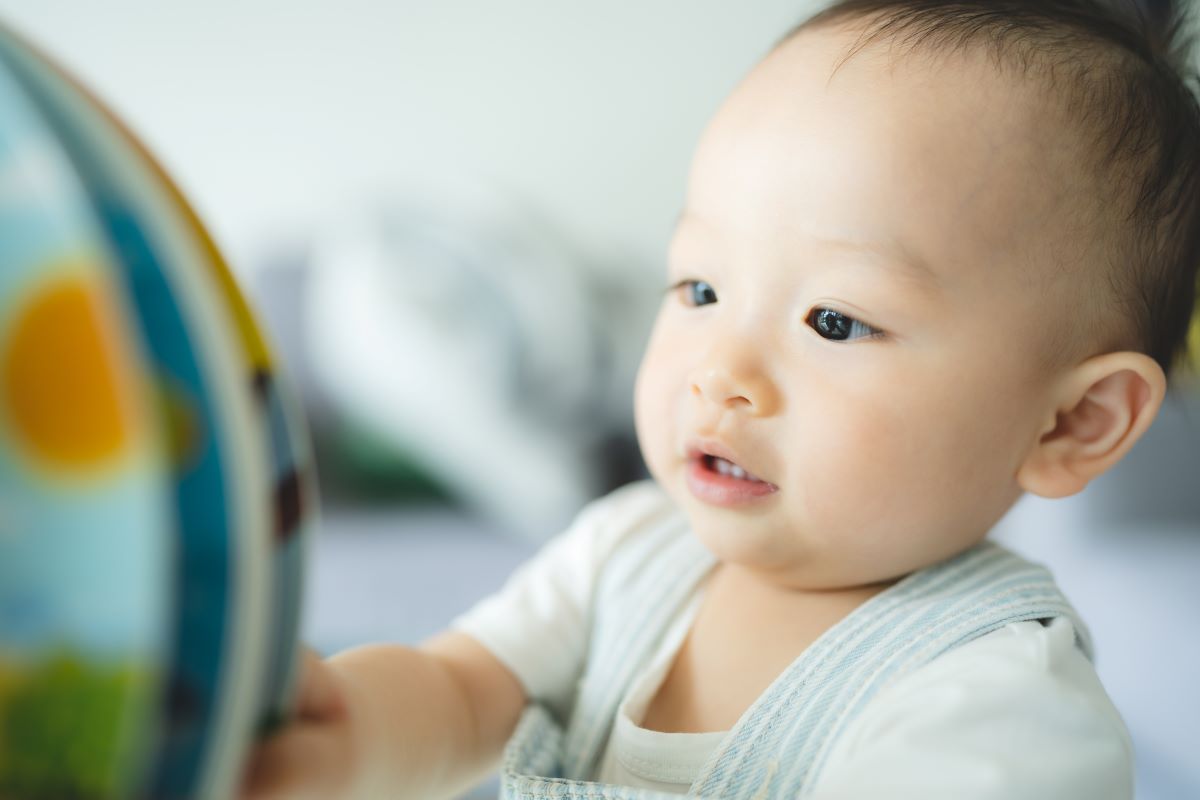
Visual Milestones:
Visual milestones denote significant development in a toddler's ability to perceive and interact with his surroundings by 17 months.
- Improved sense of distance when climbing or walking.
- Can identify colours and shapes much better.
- The child can trail an object with the eyes.
- Stacking blocks or fitting shapes to corresponding holes is much better.
Hearing Milestones:
By 17 months, the hearing area attainment matches what a child should be able to do regarding hearing and understanding his environment.
- Generally, they react when called by name.
- They can understand and respond to simple words such as "come here" and "no."
- Shows interest in picture books and recognises familiar sounds.
- Can seem to enjoy imitating animal noises or other noises she hears.
3. Smell and Touch Milestones For a 17 Month Old Baby
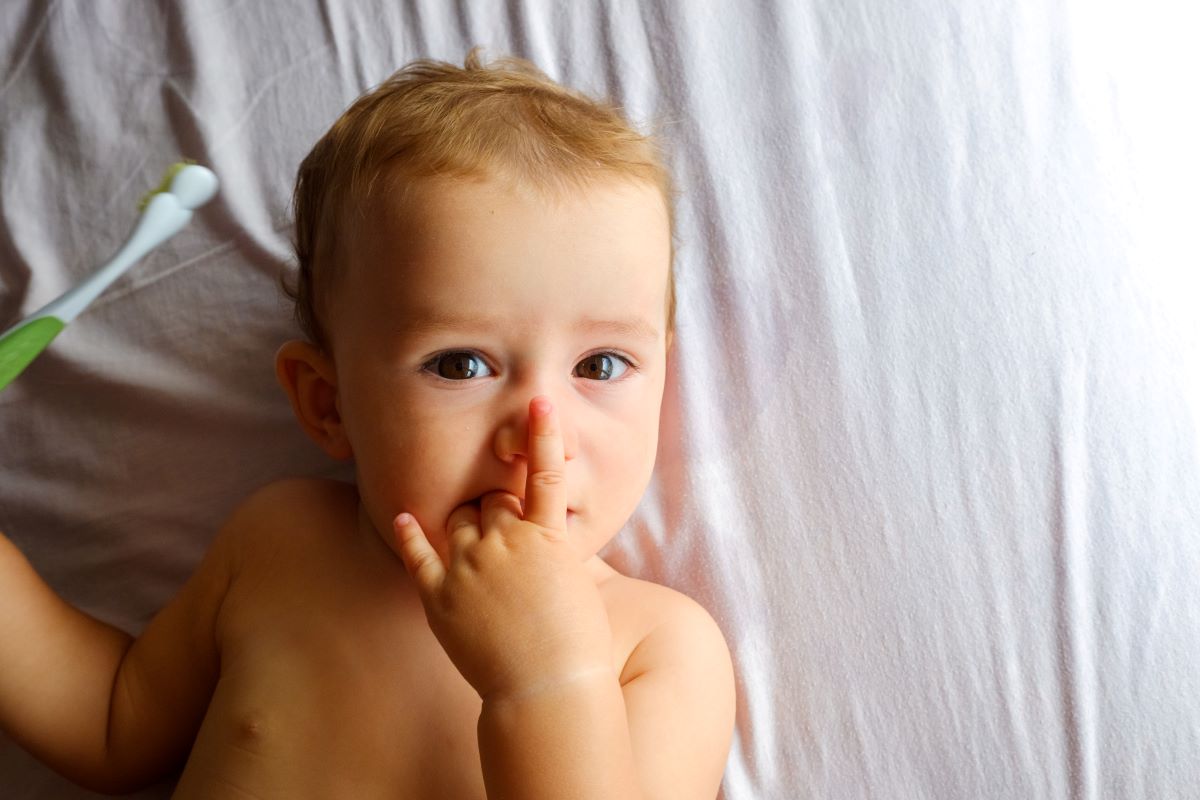
Smell Milestones:
Smell milestones at 17 months reveal that a baby is developing skills to identify and respond to environmental odours.
- Familiar Smells: They can identify and like familiar smells through parental presence or food preference.
- Response to Smells: Like or dislike towards novel smells that translates to expressions of likes.
- Exploratory Behaviour Towards New Smells: The more exploratory they are, the more they need to view other new smells in their environment.
Touch Milestones:
At 17 months, touch milestones show a child's curiosity and capabilities as they familiarise themselves with their surroundings through their senses.
- Different Textures or Surfaces: They like to rub against different surfaces or textures, like soft, rough, or smooth.
- Manipulative Skills: The child improves dexterity by manipulating objects and stacking or fitting them together.
- Fine Motor Skills: They can pick little things using a pincer grasp, enhancing how they touch things.
4. Sleep Milestones For a 17 Month Old Baby
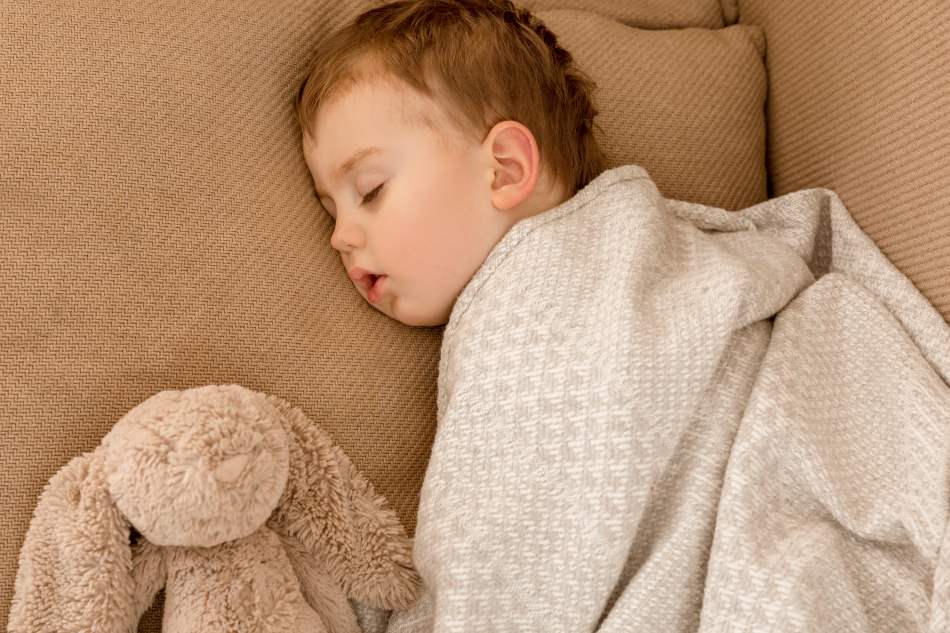
Sleep Milestones for a 17 month old:
- Sleeping Hours: Most toddlers sleep 11 to 14 hours in a 24-hour cycle, including napping.
- Napping Patterns: Most children have one long nap during the day that lasts anywhere between 1 to 3 hours.
- Bedtime Routine: It acts like an all-important transition that hints to the child that bedtime preparation is soon on its way.
- Self-Soothing: Typically, children master some form of self-soothing by using a toy or changing their position when they wake up.
5. Health Milestones For a 17 Month Old Baby
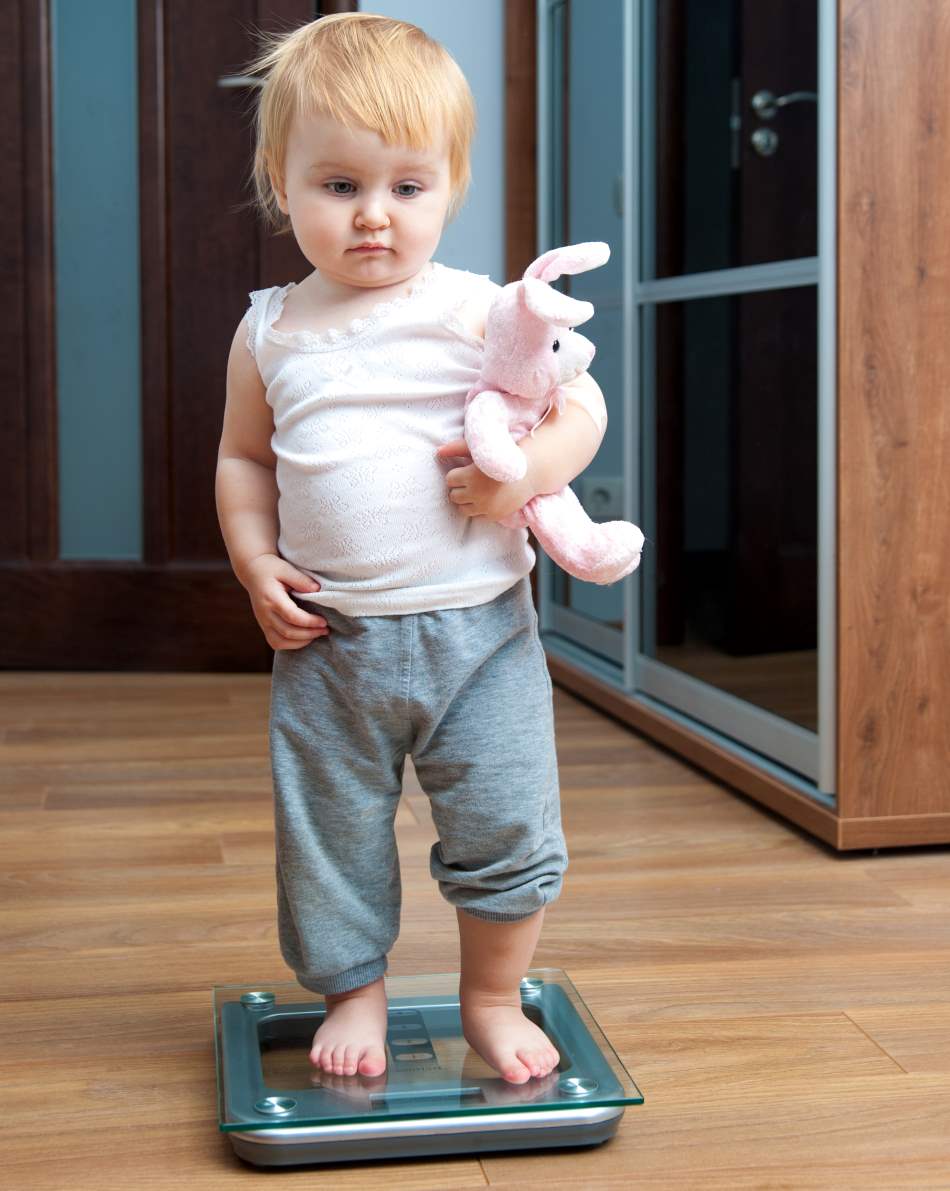
Regular check-ups with a paediatrician can provide further insights into your child's growth patterns.
6. Feeding Milestones for a 17 Month Old Baby
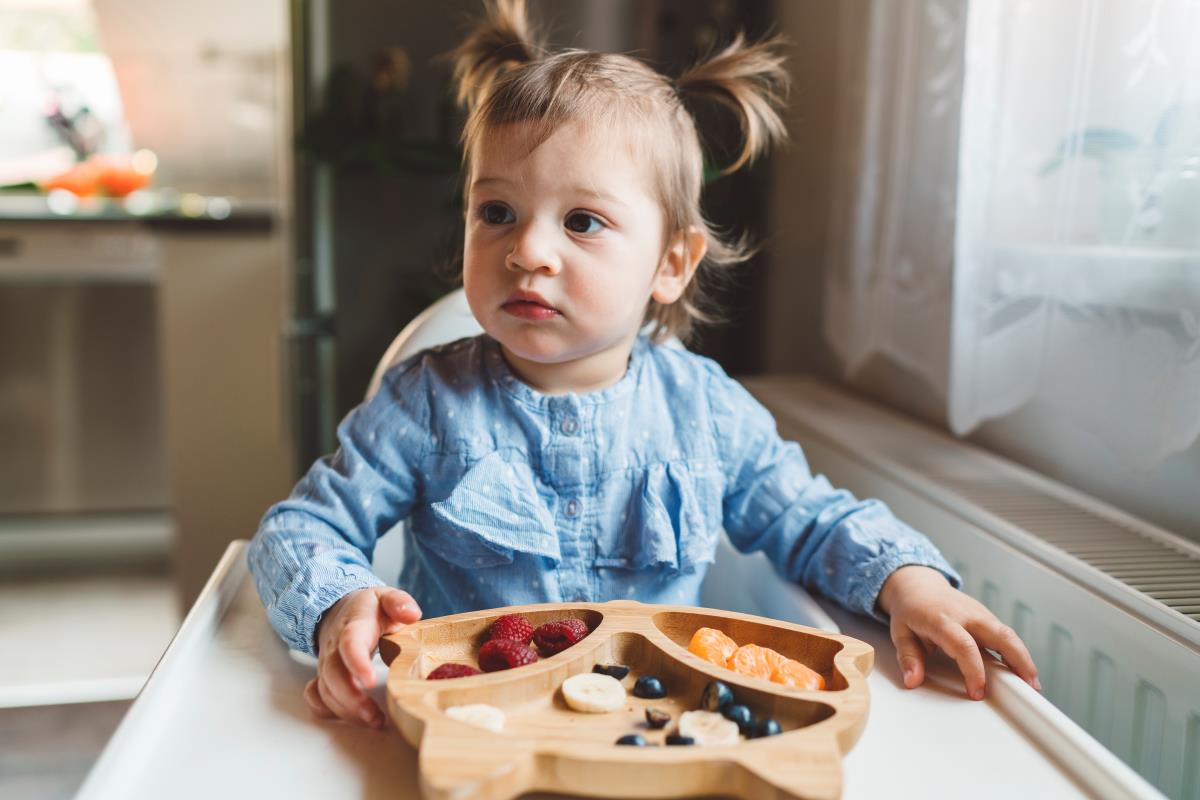
Feeding Milestones for a 17 month old:
- At 17 months, most children can feed themselves with utensils.
- They tend to consume many fruits, vegetables, grains, and proteins.
- They can chew adequately; hence, the wider the texture of the foods.
- They could take liquids from an ordinary cup with less spillage.
- They have preferences and dislikes; most like to have the known or their favourites.
7. Schedule and Routine Milestones For a 17 Month Old Baby
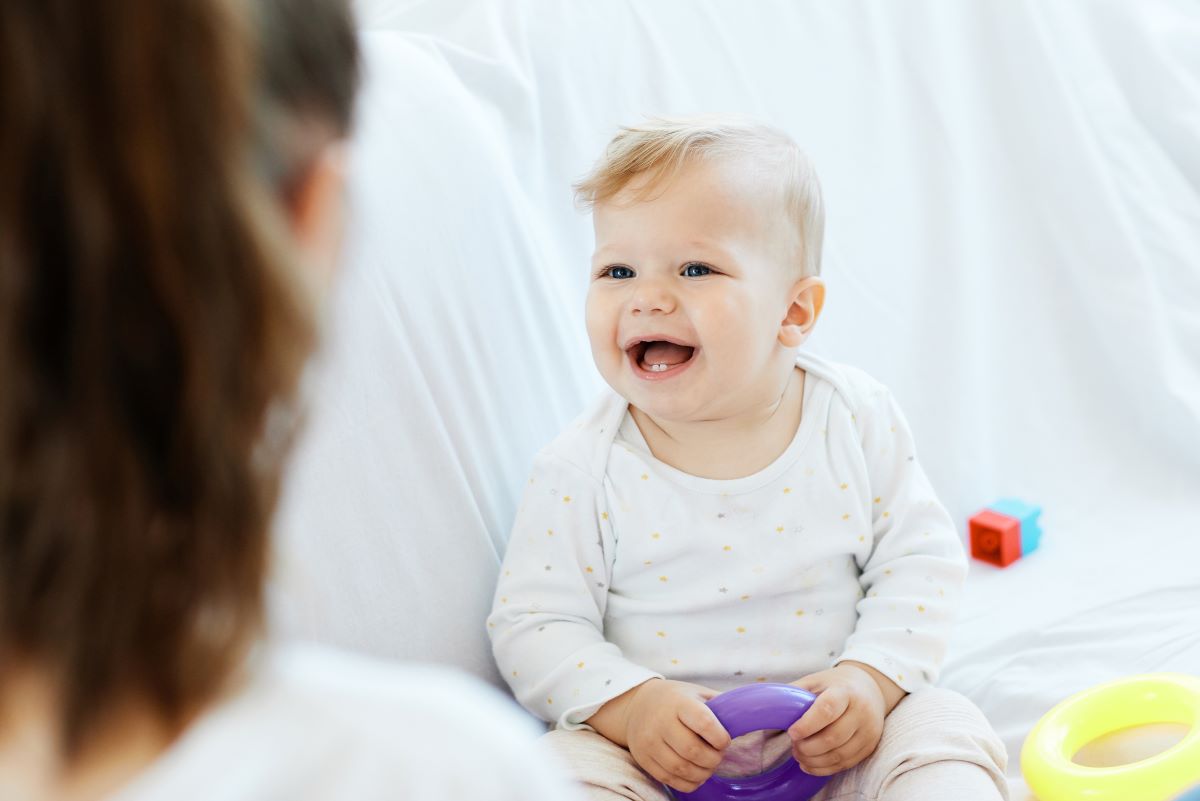
Here is the following schedule and routine for a 17 month old :
8. Cognitive Milestones For a 17 Month Old Baby
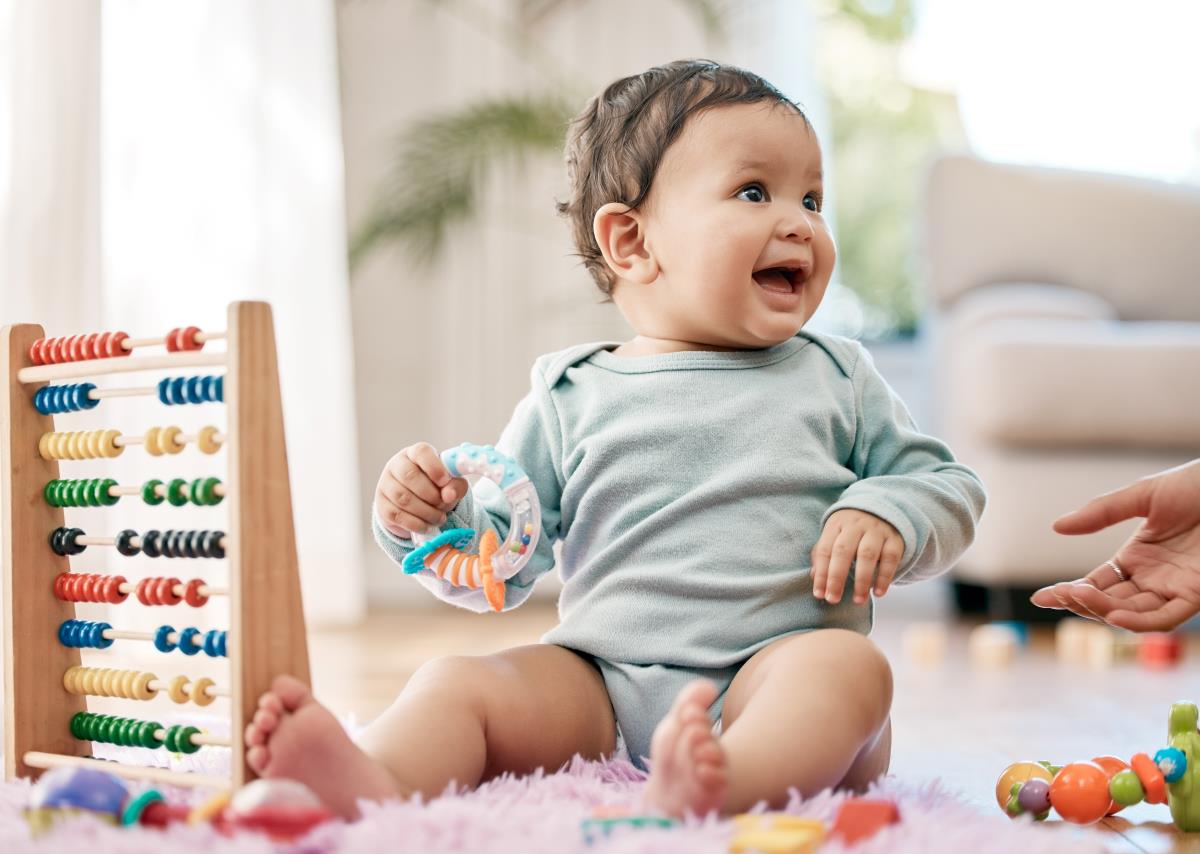
Here are key cognitive milestones for a 17 month old:
- Problem Solving: They start by solving relatively easy problems, such as how to get that toy out of reach.
- Imitation: Toddlers try to imitate whatever is done by the adults and the older children; you find them exercising learning through observation.
- Object Permanence: Their object permanence becomes even more defined, even if an object is not in line of vision.
- Simple Puzzles: Toddlers can solve relatively simple puzzles, especially shape sorters, displaying their progress in spatial awareness.
- Respond to Commands: Most babies can understand simple commands like "Bring me the ball" or "Find your shoes."
9. Social and Emotional Milestones For a 17 Month Old Baby

Social and Emotional Milestones for a 17 month old:
- Toddlers are typically attached to their caregivers and fear separation.
- Toddlers start imitating adults and their age mates in social life.
- They can express their feelings of happiness, anger, frustration, and empathy freely.
- Simple role-playing, demonstration of imaginary ability and social roles.
- Basic principles of sharing and taking turns, however, are quite undeveloped.
10. Language and Speech Milestones For a 17 Month Old Baby
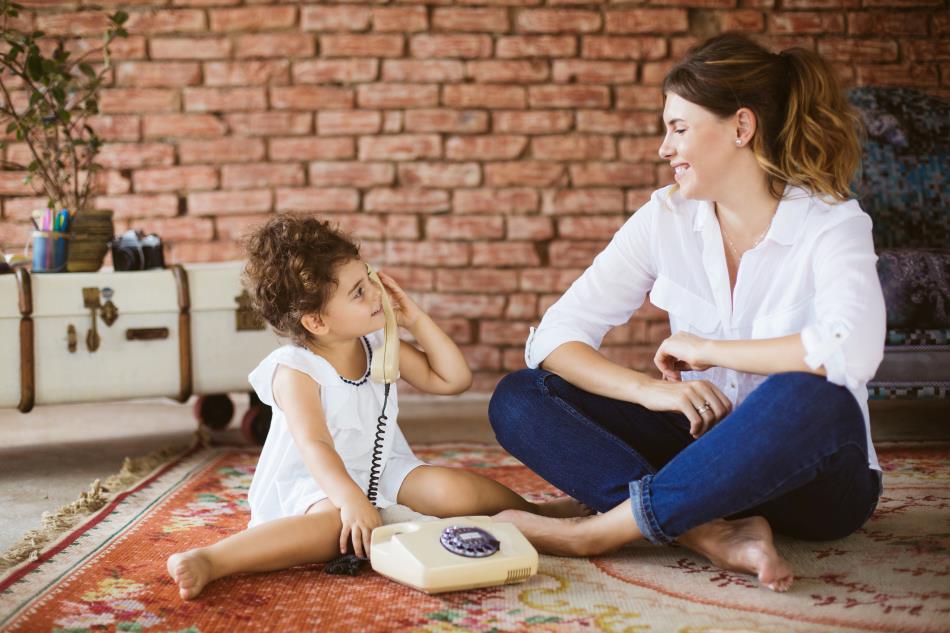
Language and Speech Milestones Development for a 17 month old:
- Vocabulary Enlargement: Toddlers can utter between 5 to 20 words and may begin to use them frequently.
- Vocabulary Comprehension: They comprehend many more words than they utter. They tend to follow straightforward directions.
- Vowel Imitation and Word Repetition: Toddlers tend to imitate words and sounds they hear for the first time, straightforward words used by adults.
- Communicative Expression: Toddlers use gestures such as pointing or waving to indicate a need or feeling.
- Single Word Sentences: Imitation of single word sentences with two words, such as "mama help."
11. Play Milestones For a 17 Month Old Baby
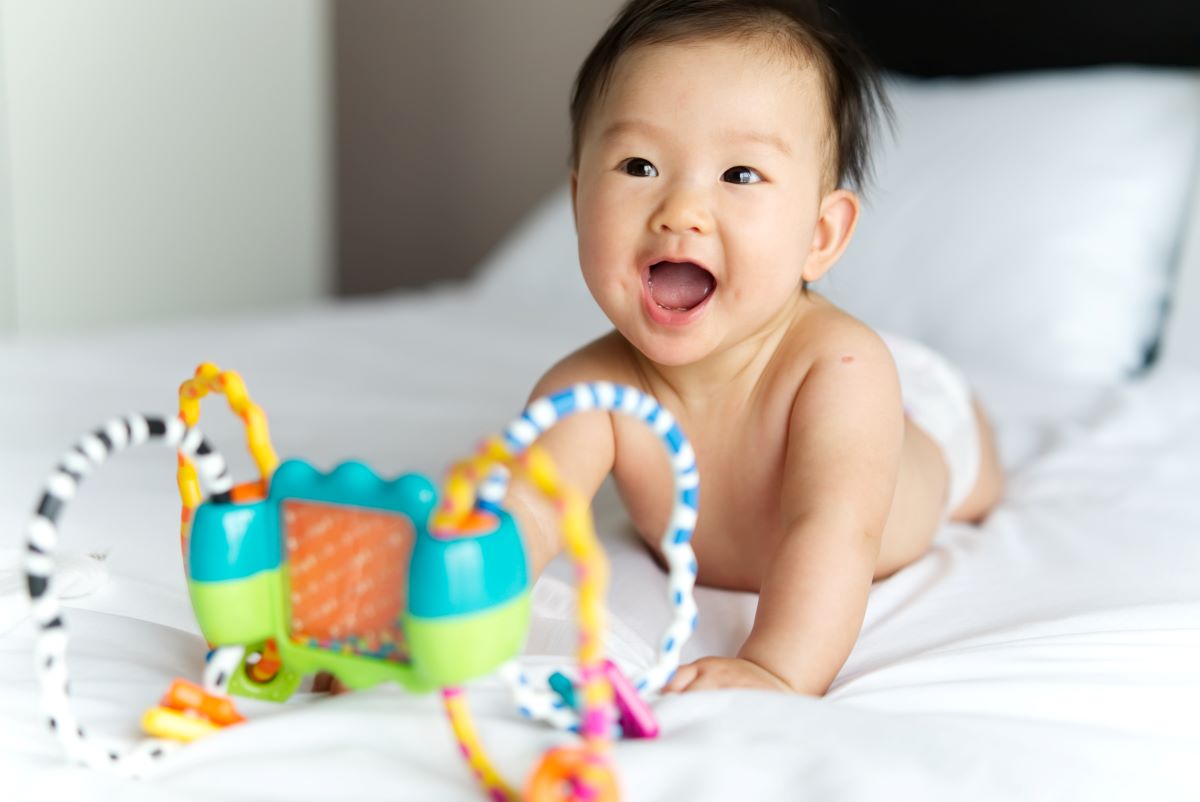
Play Milestones for a 17 month old:
- The children like imitation games, such as cooking, cleaning, and telephone use.
- They can play with different types of toys.
- Pretend activities may include feeding a doll or pretending to drive a toy car.
- They enjoy games in turns, for example, rolling the ball back and forth.
- Their increased curiosity drives them to climb and manipulate objects.
12. Physical and Motor Milestones For a 17 Month Old Baby
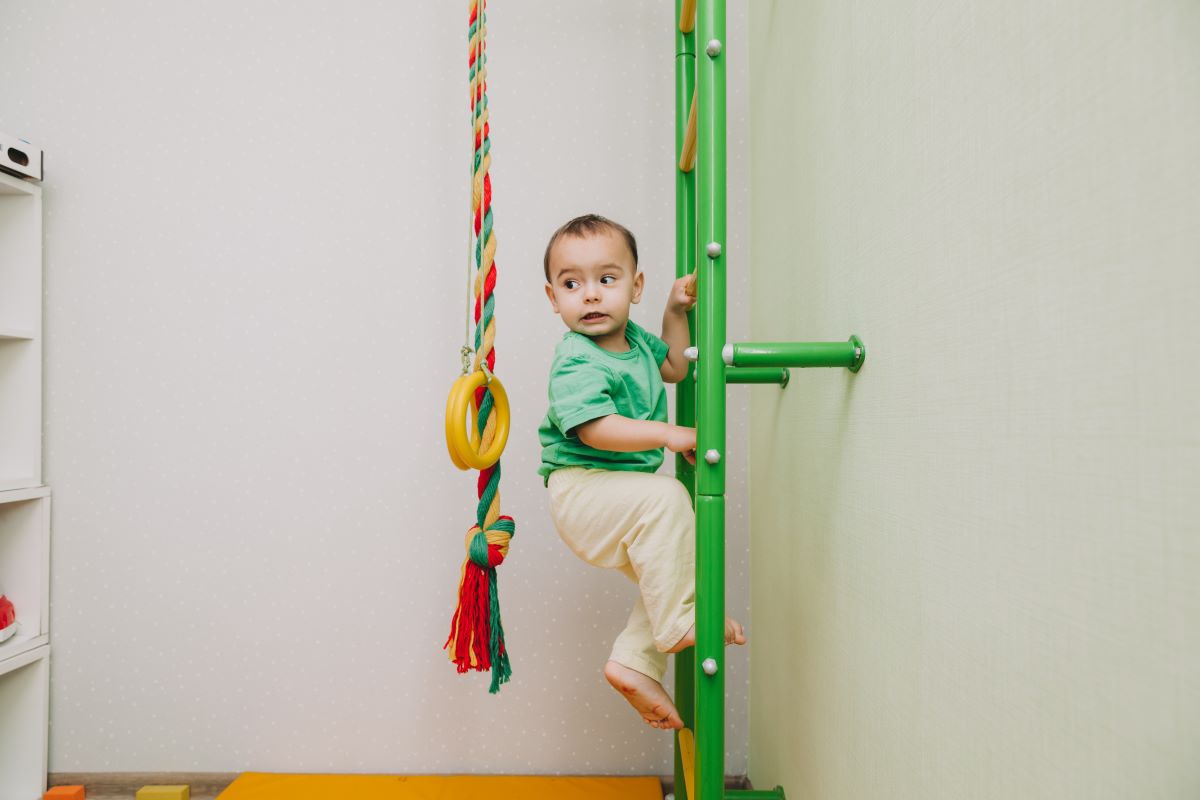
Physical and Motor Milestones for a 17 month old:
- Most children can walk alone and become habituated to running or walking.
- They like climbing up on furniture or playground structures, reflecting coordination.
- They can kick forward and sometimes throw things in a good direction while throwing.
- They improve their skills at stacking blocks but also like to play with small objects.
- Most can feed themselves with utensils to exhibit independence at mealtime.
Different Engaging Activities for a 17 Month Old
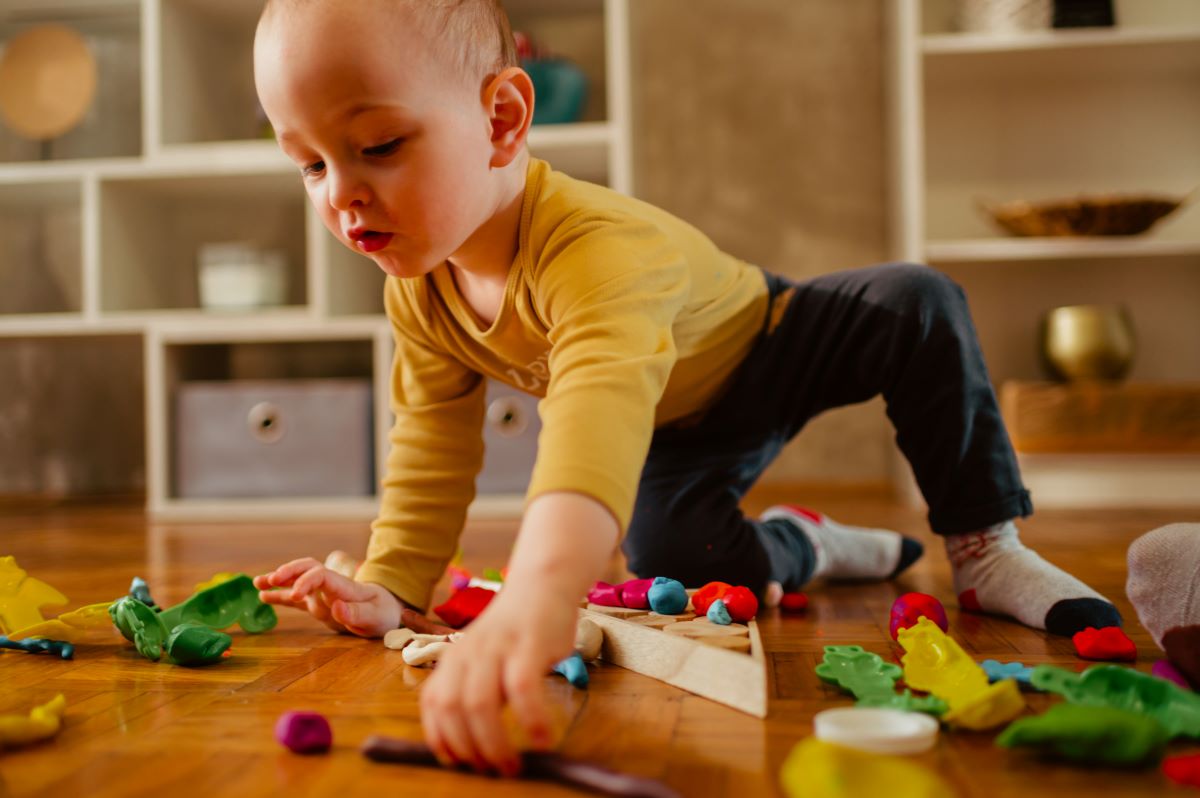
1. Toss and Catch
Use a soft ball to play toss and catch with your 17 month old child. It is an active play activity that can increase your child’s coordination level. It also helps them get some exercise, ensuring proper growth.2. Building a Tower
Let your little one stack blocks of varying sizes. Building a tower will develop fine motor skills and hand-eye coordination to build or balance the towers without collapsing. You can join in, make a collaborative effort, and create bonding.3. Shape Sorter
Use shape sorters or simple puzzles to teach your child important lessons about squares and circles and recognising colour differences. This activity is good for both cognitive and spatial awareness. Ask questions about the shapes during play.4. Imaginative Play
Provide a kitchen play set, dolls, or toolkits that encourage imaginative play. In imaginative play, the child uses creative imagination to develop social skills and abilities. You can initiate role-playing by playing with them, enriching their understanding of social contact.5. Interactive Books
Read through interactive books with flaps, textures, or sounds together. This helps encourage language development and early literacy skills while keeping your child interested in the interactive elements. You can then use voices to make the characters entertaining.6. Music and Movement
Put on music and encourage your child to dance in the room to the music. The workout will build the child's physical potential and be useful for his sense of rhythm and hearing. You can always add instruments, for example, shakers or tambourines, to make it interactive.7. Outdoor Discovery
Take the child outside to discover nature. The child will see various textures, hear diverse sounds, and see varied vision. Outdoor play stimulates curiosity and senses. Use a magnifying glass to enlarge the "beautiful leaves" and "insects" to explore unusual colours.8. Art Projects
These include using different kinds of washable crayons or finger paints to create a fun mess. The child's fine motor skills, creativity, and self-expression development are matched if the mess is messy and fun.9. Sorting and Match
Use the children's colourful balls or objects you have at home give you. For example, challenge your child to match items of the same colour or size to enhance his cognitive ability and critical thinking capabilities. Increase their complexity as they grow in this aspect.10. Animal Sounds Game
Take turns suggesting what animal it is and then imitating the sounds it makes both as a word-building task and for auditory discrimination. A child might say "cow" and imitate a "moo," and others quickly join in, making a ruckus. Children learn what sounds they make.Safety Tips For a 17 Month Old Baby
Safety comes first since your baby is growing very active and keen on the world around them at 17 months. Here are some tips to focus on safety:
How to Support a Baby's Development at 17 Months?
1. Language Activities
Frequent, simple, and nonverbal communication with your child develops vocabulary through reading books, singing songs, and spoken words. Engaging in playful interactions, such as rhymes and games, also enhances language skills and fosters a love for communication.2. Opportunity for Independence
Provide time and allow the child to explore and decide on picking snacks or toys for self-feeding and dressing; it will give confidence and enhance fine motor skills. Encouraging choices in activities helps the child develop problem-solving skills and a sense of autonomy.3. Socialisation
Arrange playdates or group activities with other children so they can learn social skills such as sharing, taking turns, etc. These experiences prepare them to handle relationships and even body language.4. Emotional Support
You must support your tremendously emotional child. Teach the child simple words to express their feelings so that they can communicate better and be heard. Listen to your child and validate their feelings so they think without being rebuked for expressing emotions.5. Routine
A mealtime, naptime, or bedtime routine is good. It gives your child security and predictability and reduces anxiety because they are accustomed to what will happen. Consistent routines help children develop self-discipline and understand the passage of time.6. Positive Behavioural Modeling
Exhibit behaviours you want to see. Share, speak politely, and express emotions appropriately. People who live with them learn such behaviours by imitation. This creates a supportive environment where children feel encouraged to practise and adopt positivity.7. Nutrition
A balanced diet comprises many fruits, vegetables, whole grains, and proteins and can keep your child well-nourished and healthy. Let your 17 month old child have different dishes, but do not impose on them if they don't like them.When to Talk to the Paediatrician?
Delayed Milestones:
You must tell your paediatrician if your 17 month old hasn't walked, uttered words, or achieved any other developmental milestones. Early intervention can be the difference-making factor in fixing possible problems.Very Frequent Tantrums:
If your child's tantrums are frequent or severe, seem uncontrollable, and disrupt everyday routines, talking with the paediatrician can identify some underlying causes or ways to handle them better.Food Issues:
If your child is picky about food or doesn't want to eat, you should meet with a paediatrician for proper nutrition and possible solutions. Food is essential for growth at this age.Behavioural Changes:
Any recent changes in behaviour that would cause your child to become more aggressive, fearful, or withdrawn warrant bringing this to the attention of your provider to rule out problems or stressors for your child.Sleep Disturbance:
Your paediatrician should be called in and educated on how to deal with your child's continued sleep disturbances, either night wakings or an inability to fall asleep.Developmental Issues:
If your child lacks physical, language, or social skills, take your child to a paediatrician to discuss such issues; further evaluation is needed, and appropriate resources are available.FAQs about 17 Month Developmental Milestones
Can 17 month old babies walk?
What are the vocabulary words for a 17 month old?
At what age should a 17 month old baby demonstrate fine motor skills?
What are the typical 17 months' emotional milestones?
How many hours does a 17 month old need to sleep?
What are the play activities for a 17 month old?
What if my child cannot walk at 17 months?
Is it common for a 17 month old to be fussy about food?
How can I support my 17 month old child's emotional development?
My 17 month old child throws tantrums often. How should I react?
Can my 17 month old understand simple instructions?
Does a 17 month old need a routine?
How can I promote social skills in my 17 month old?
Important Articles about Infant Developmental Milestones
Disclaimer
- This is an informative article provided on 'as is' basis for awareness purpose only and not intended as a professional advice. The content of the article is derived from various open sources across the Internet. Digit Life Insurance is not promoting or recommending any aspect in the article or its correctness. Please verify the information and your requirement before taking any decisions.
- All the figures reflected in the article are for illustrative purposes. The premium for Coverage that one buys depends on various factors including customer requirements, eligibility, age, demography, insurance provider, product, coverage amount, term and other factors
- Tax Benefits, if applicable depend on the Tax Regime opted by the individual and the applicable tax provision. Please consult your Tax consultant before making any decision.
Latest News
Read More
















